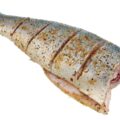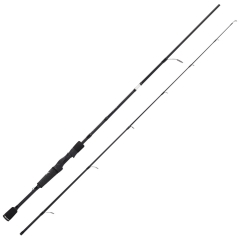Gout is a painful metabolic disease that causes excess uric acid in the blood. Grouper consumption is not harmful to those suffering from gout. For those on the gout diet wondering, “Is grouper bad for gout?” this article is exactly what you need!
Fish such as grouper are popular. It has anti-inflammatory properties, and some believe it can prevent gout flare-ups. Due to its low purine content, grouper is popular with gout patients. This does not mean that grouper is not without risks.

Is Grouper Bad for Gout patients?
If you have gout, you know that it can be a debilitating condition. A buildup of uric acid in the blood causes gout, and there’s no cure yet.
Uric acid, a byproduct of purine nucleotide breakdown, can damage your joints and other tissues. A diet high in processed foods, meat, and some medications can cause high uric acid levels, one of the main causes of gout.
Medications are often prescribed to lower uric acid levels and relieve gout symptoms, but they only work for a small percentage of people. Infections or high blood pressure can also make gout flare up, causing secondary gout.
Even though some fish proteins have a lot of arachidonic acids, which can cause inflammation and gout, this article shows that other omega-3s don’t cause inflammation, like grouper. Grouper is easy to include in your gout diet.
Is Grouper Fish High in Purines?
The low purine content of grouper makes it popular with gout patients. However, this does not mean that grouper is without risks. Gout flare-ups can be caused by mercury in the grouper. Moreover, grouper can have moderate vitamin B12 content and impair purine metabolism.
Is grouper bad for gout? Grouper fish have low purine content, according to a study published in “Food Science and Technology.“ It is okay to eat grouper if you have gout, and it won’t make it worse if you eat it in moderation, and grouper’s fine for gout diets.
What fish should you avoid with gout?
Fish and seafood. Sardines, shellfish, anchovies, and tuna are among the seafood types that contain more purines than others. Despite this, eating fish may provide more health benefits than risks for people with gout. If you have gout, you can incorporate moderate portions of fish into your diet.
The gout problem is not caused by a single food or drink, but rather by a combination of dietary factors that can increase your risk of developing the disease. If you have gout, you should avoid consuming any fish with high mercury levels. Mercury can increase your risk of developing gout and other health problems. Some types of fish that are high in mercury include swordfish, sharks, king mackerel, tilefish, and mahi-mahi.
What fish is good for gout?
There is no one-size-fits-all answer to this question, as the best fish for gout will depend on your lifestyle and dietary preferences. However, some of the most commonly recommended fish for those with gout are grouper, salmon, and tuna.
Grouper is a great fish for people with gout. Grouper’s high omega-3 fatty acids can help reduce inflammation and joint pain. Additionally, grouper is low in mercury, so it’s a good choice for those concerned about their health.
Grouper is a medium-sized fish known for its mild flavor and high protein content. This makes it a great choice for those looking to reduce their overall intake of processed and other unhealthy foods. Additionally, grouper contains good vitamin B12, essential for keeping gout in check.
Is Grouper Safe for gout?
Yes, grouper is generally safe for people with gout. The fish contains high omega-3 fatty acids, which are thought to have anti-inflammatory properties. Additionally, grouper is a low-calorie food that can be enjoyed as part of a healthy diet.
People with gout often eat grouper. Studies have shown that grouper can be a good source of protein and minerals, which can help manage the disease. However, as with any food choice, it’s important to consult your doctor before adding grouper to your diet for gout.
Does grouper trigger gout?
There is some debate about the potential benefits and drawbacks of consuming grouper, as it can be a source of inflammation for some people. However, there is little evidence to suggest that grouper is directly responsible for triggering gout. Many experts believe that the high levels of anti-inflammatory omega-3 fatty acids found in grouper may help to reduce the risk of gout flare-ups.
But, grouper is a type of fish that can be high in mercury sometimes. Some people believe this mercury can trigger gout episodes in those susceptible to the condition. However, there is not enough scientific evidence to support this claim.
How to Manage a Gout Diet with Grouper
If you have gout, keep your diet high in inflammatory omega-3 fatty acids. Incorporating natural foods, steamed and baked, into meals as possible to reduce your risk of flares is important. Here are three tips for managing a gout diet with grouper:
- Learn about grouper’s mercury level. The grouper is a fish high in mercury, so consider the grouper’s mercury level before eating regularly.
- Choose organic grouper whenever possible. Grouper are caught in fresh and saltwater, so choosing organic grouper will help reduce your exposure to environmental toxins.
- Avoid processed foods and eat wholesome foods. When dining out, choose dishes made with fresh ingredients instead of processed foods.
- Try to come up with balanced meal plans.
- Avoid eating grouper at night if you have gout, and keep your intake low during periods of high activity (like during a strenuous workout).
How Does grouper help with Arthritis and Gout?
Grouper is a type of fish that is high in omega-3 fatty acids. These fatty acids are beneficial for arthritis and gout, as they can help reduce inflammation. Additionally, the omega-3s in grouper can help decrease uric acid levels in the blood. This can help to improve your overall health and reduce your risk of developing gout or arthritis.
What are the health benefits of omega-3 for gout patients?
There are many health benefits to taking omega-3 fatty acids for gout patients. Omega-3 fatty acids reduce inflammation and pain, which are important for gout patients. Omega-3 fatty acids also help to reduce the risk of stroke and heart disease.
Grouper is a good source of magnesium and other essential minerals, which can help relieve gout symptoms. Magnesium is especially important for reducing inflammation and helping to maintain a healthy blood pressure level.
Conclusion
Although grouper is not necessarily harmful to gout sufferers, it might be wise to avoid eating it regularly because of its high mercury content. While on a diet, monitor your blood pressure closely if you decide to eat grouper.











